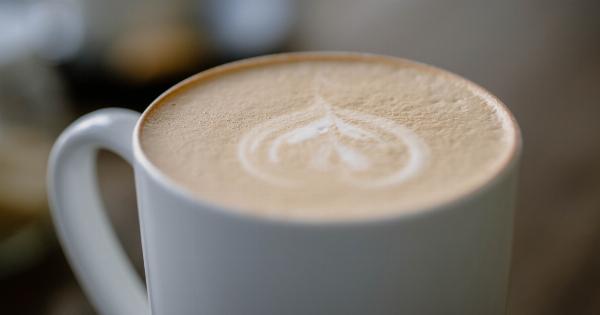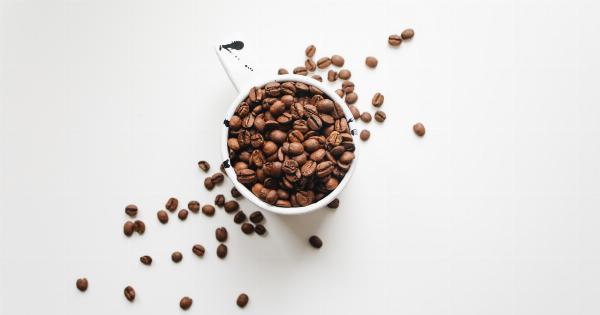Coffee has come a long way since it was first discovered in Ethiopia over a thousand years ago. Today coffee has become a staple in most people’s diets, and it has transformed into a cultural phenomenon across the globe.
The taste transformation of coffee drinkers has been a fascinating journey to witness, with the emergence of specialty coffee shops and roasters, the rise of coffee culture, and the role technology has played in brewing coffee. In this article, we will break down the taste transformation of coffee drinkers and explore the factors that have contributed to it.
The rise of specialty coffee
The specialty coffee movement has been a significant contributor to the taste transformation of coffee drinkers.
Specialty coffee refers to high-quality coffee that’s grown in specific geographic regions and under specific conditions, with a focus on sustainability and transparency in the supply chain. Specialty coffee shops and roasters have popped up all around the world, offering a wide range of carefully crafted and sourced blends that cater to the tastes of discerning coffee drinkers.
The impact of coffee culture
Coffee culture has been on the rise, with people having a deeper appreciation for the art of coffee brewing. This culture has led to an increase in the number of coffee shops that offer specialty brewing methods like pour-over, French press, and Chemex.
These methods allow coffee drinkers to experience unique flavor profiles that they wouldn’t have otherwise tasted, and it has contributed to an increased demand for high-quality, craft coffee.
The role of technology in brewing coffee
The role of technology in brewing coffee has also contributed to the taste transformation of coffee drinkers. Brewing coffee has traditionally been seen as an art, with baristas using their skills and knowledge to craft the perfect cup of coffee.
Today, however, innovative technologies like coffee makers, espresso machines, and coffee grinders, have made it easier for people to brew coffee at home with consistent results. These technologies have made it possible for even amateur coffee enthusiasts to brew high-quality coffee, thus contributing to the demand for specialty coffee beans.
How coffee taste has evolved
As specialty coffee and coffee culture become more popular, people’s taste preferences have evolved, with many coffee drinkers now favoring lighter roasts that highlight the unique characteristics of the beans.
Lighter roasts retain much of the original flavor of the coffee beans, and they are often seen as more complex and nuanced than darker roasts. Additionally, coffee drinkers have also become more accepting of acidity in coffee, with many embracing the fruitiness and brightness that it can bring to the cup.
The importance of single-origin coffee
Single-origin coffee has become increasingly popular over the last few years, with coffee drinkers seeking out these beans for their unique flavor profiles.
Single-origin coffee refers to coffee beans that are sourced from a specific region, estate, or farm. Blind taste tests have shown that single-origin coffee can have superior flavor profiles to blends, and it’s this unique taste that has made it so attractive to coffee drinkers.
The impact of sustainability on coffee taste
As the demand for specialty coffee grows, the need for sustainable coffee practices has become increasingly important. Sustainable coffee practices include protecting biodiversity, reducing carbon emissions, and ensuring fair wages for coffee farmers.
These sustainable practices often result in coffee beans with a more complex and unique flavor profile, which coffee drinkers have come to appreciate.
The future of coffee taste
The taste transformation of coffee drinkers is far from over, with new trends emerging all the time. One trend that is rapidly gaining popularity is nitro cold brew coffee.
Nitro cold brew coffee involves infusing cold brew coffee with nitrogen gas, giving it a creamy texture and a frothy head. This trend is just one example of how coffee is evolving, and there will undoubtedly be many more to come.
Conclusion
The taste transformation of coffee drinkers has been a fascinating journey to witness, with specialty coffee, coffee culture, and technology all playing a significant role.
The evolution of coffee taste has led to an increased appreciation for high-quality coffee, with coffee drinkers seeking out unique flavor profiles and single-origin beans. The importance of sustainability and ethical sourcing has become more critical than ever before, with coffee drinkers demanding transparency in the supply chain.
As we look to the future, it’s clear that coffee will continue to evolve, and we can’t wait to see what’s next.






























